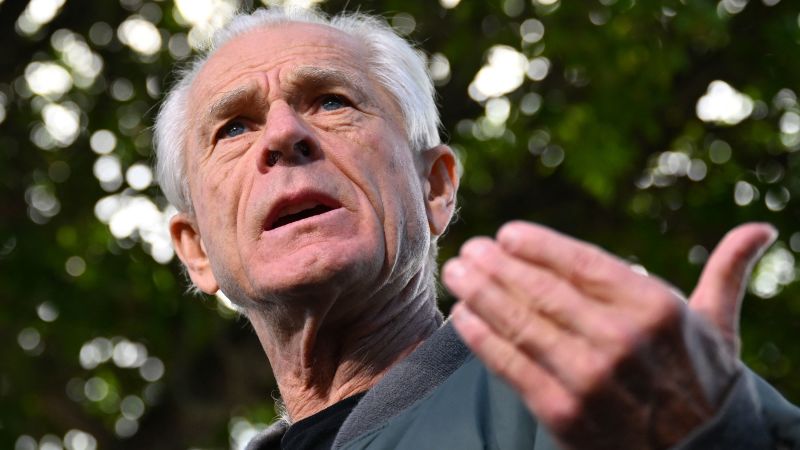Former Trump economic aide Peter Navarro has had his request to reduce his four-month prison sentence for contempt of Congress denied by a federal judge. Navarro was found guilty of ducking a subpoena for documents and testimony related to the January 6, 2021, Capitol attack. Last week, he requested to exchange 30 days of supervised release for a shorter sentence under the First Step Act, but the judge denied his request, stating that the original four-month prison term was appropriate. Navarro reported to a federal prison in Florida on March 19 after his previous appeals were rejected by the Supreme Court.
Despite Navarro’s efforts to cut his prison sentence short, the judge determined that the original sentence was appropriate given the severity of his actions. Navarro’s refusal to comply with a congressional subpoena related to the Capitol attack led to his contempt of Congress charge and subsequent imprisonment. The judge’s decision highlights the importance of respecting the legal process and consequences of defying congressional subpoenas.
Navarro’s case serves as a reminder of the consequences of failing to adhere to legal obligations and cooperate with congressional investigations. His actions, which ultimately resulted in his contempt of Congress charge and prison sentence, demonstrate the serious repercussions individuals face when they choose not to comply with legal mandates. The judge’s decision to uphold the original sentence emphasizes the significance of upholding the rule of law and holding individuals accountable for their actions.
Throughout the legal proceedings, Navarro’s attempts to reduce his sentence through various appeals were unsuccessful, ultimately leading to his imprisonment. The rejection of his request for supervised release in exchange for a shorter sentence underscores the seriousness of his actions and the necessity of serving the full term for his contempt of Congress conviction. Navarro’s case highlights the importance of upholding the legal system and respecting the consequences of defying legal mandates.
In light of the judge’s decision to deny Navarro’s request for early release, it is evident that the consequences of his actions have been taken seriously by the court. His imprisonment serves as a cautionary tale for others who may be considering defying legal obligations or congressional subpoenas. By upholding the original four-month prison sentence, the judge has made it clear that Navarro’s actions will not be tolerated and that individuals must be held accountable for their defiance of legal processes.
Overall, Navarro’s case demonstrates the importance of respecting legal obligations, cooperating with congressional investigations, and upholding the rule of law. The judge’s decision to deny his request for early release emphasizes the severity of his actions and the consequences of defying legal mandates. Navarro’s imprisonment serves as a reminder of the repercussions individuals face when they choose not to comply with legal requirements and highlights the significance of holding individuals accountable for their actions.


